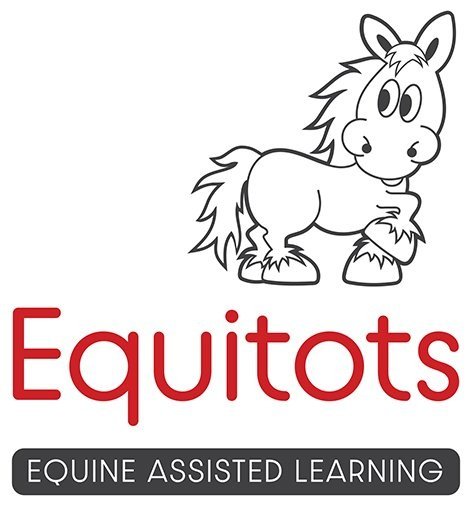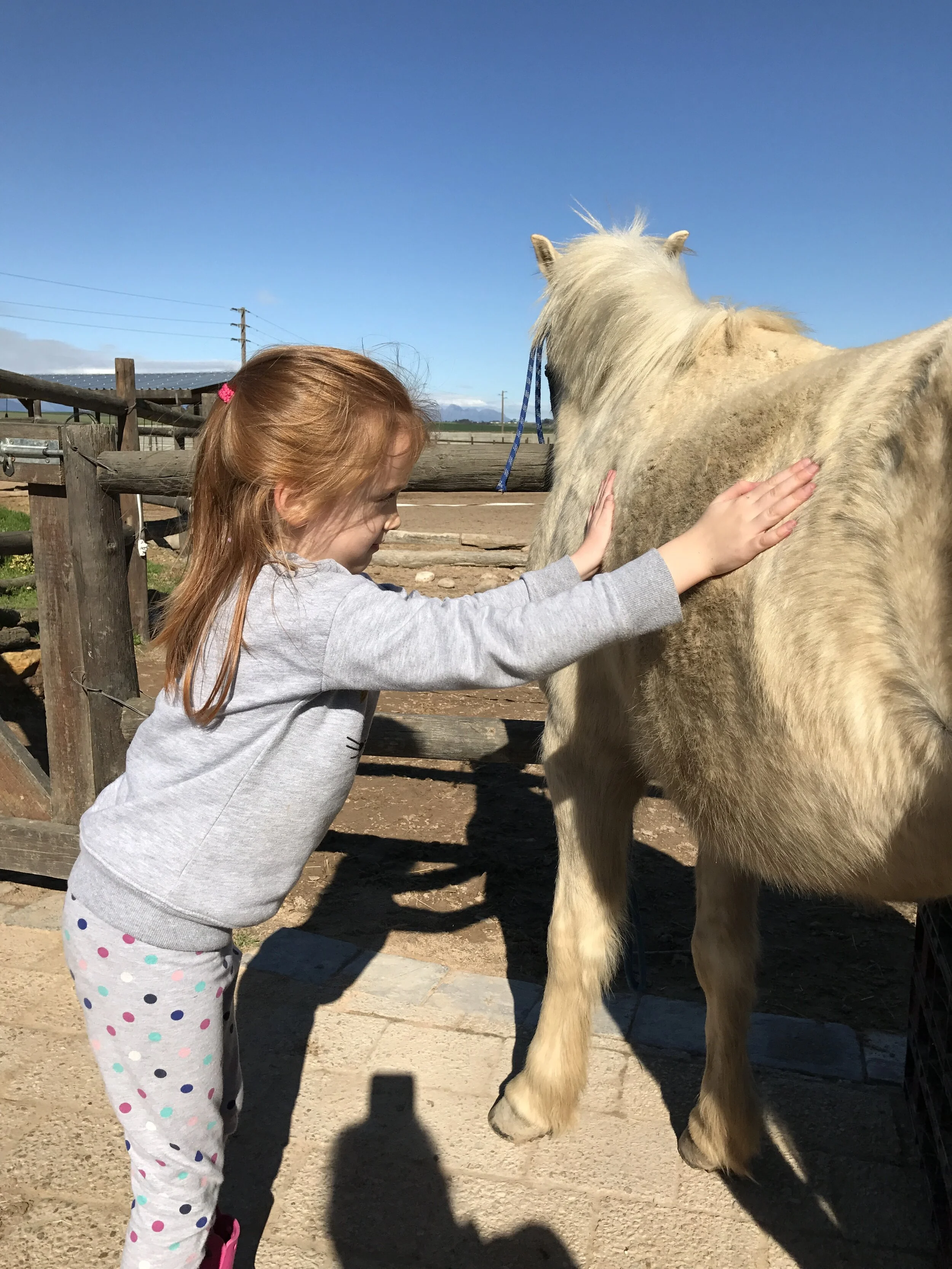Equitots is a carefully designed, holistic Equine Assisted Learning program, which benefits children physically and improves cognitive and sensory, emotional, social and psychological development.
The Benefits of Equine Assisted Learning
In Philosophy - "Holistic" is characterized by the belief that the parts of something are intimately interconnected and explicable only by reference to the whole.
In Medicine - "Holistic" is characterized by the treatment of the whole person, taking into account mental and social factors, rather than just the symptoms.
All of the above is true for Equitots. It is our way, how we view humans, horses and ponies, and all animals that may run around our places, including the environment.
Balance and Posture
Because horseback riding requires balance and good posture for all riders, students lacking good balance and posture will be working on their balance issues the very moment they mount.
The motion of the horse is very similar to the motion created in the human pelvis. The exercise of riding grounds the rider in his or her hips, this connection between horse and rider is a fundamental element in building balance in riders with and without special needs.
Instructors often employ various exercises and riding skills that work on balance and posture in multiple ways. Because Equitots is fundamentally flexible to the student’s needs, balance exercises are quite varied. Exercises can range from simply sitting atop the horse, to walking, to trotting or actually moving on to independant riding.
Instructors working on balance and posture with a student may also use exercises such as grabbing rings while riding, riding with arms stretched out, riding with the eyes closed, riding backwards etc. The combination of supporting as well as challenging the rider enables the rider to improve their physical capabilities both on and off their mount.
Muscles and Joints
The movement of the horse also requires good muscle tone and flexibility.
The most obvious muscle regions that benefit from such exercise are the back, buttocks and legs, as well as the ankles, knees and hips.
Riding also affects smaller muscles and joints throughout the body, as riding is an activity that requires the participation of the entire body.
The different gaits of the horse can be utilized to make the student aware of different muscle groups. Riders with low tone muscle and loose flexibility will work on strengthening and tightening the muscles primarily in the back, neck, buttocks and leg regions. Riders with very high muscle tone work on relaxing the muscle and moving with the gait of the horse.
As the rider learns different riding skills, muscle tone and flexibility are increasingly improved.
The flexibility of equine assisted therapy enables riders with very different needs to benefit from the same motion while learning the same skills.
Cognitive and Sensory
People with various cognitive and sensory disabilities can be treated with riding.
Some such disorders include: mental retardation, autism, brain damage, Down syndrome, developmental disorders, ADD/ADHD, dyslexia, learning disabilities etc.
Riding requires attention, reasoning skills and memory. Because therapy and riding both build knowledge as time progresses, simple tasks grow into complex skills that provide the rider with intellectual stimulation.
Riding incorporates a lot of information into a fairly small amount of time. In a session (which varies depending on the student and the program) an individual is asked to both interpret sensory information they are receiving from the horse, instructor, environment etc., and use this information in a manner that is appropriate for learning riding skills.
The motion, feel, smell, sound and sight of a horse is a lot to take in; however, lessons can be simplified to focus only on this sensory information, giving the student time to process this information.
Higher functioning riders can use riding skills and tasks given by instructors to help integrate this sensory information in a way that makes sense to the individual student.
Riding is both relaxing and demanding for students of all cognitive abilities depending on the focus of the lesson.People with various cognitive and sensory disabilities can be treated with riding.
Some such disorders include: mental retardation, autism, brain damage, Down syndrome, developmental disorders, ADD/ADHD, dyslexia, learning disabilities etc.
Riding requires attention, reasoning skills and memory. Because therapy and riding both build knowledge as
Emotional, Social, and Psychological
Individuals with emotional, social and psychological needs all benefit in similar ways.
Riding helps the student interact with others, form meaningful relationships with horse and people.
Building a relationship with an animal is very rewarding in many aspects; for a person with an emotional, social or psychological disability the trust and loyalty an animal shows for people shows the student how important these attributes are in personal relationships.
Horses also help people feel in control of their situation because there is a direct correlation between action and reaction. To learn how to care for and ride a horse a student must also be able to communicate efficiently with the horse and the instructor. In this way, riding is a very social activity, but not something that is daunting to people who are uncomfortable in social situations.
These aspects of the riding experience are very similar to most of animal assisted therapy. However, the experience of riding a horse is very different.
Riding helps to empower people and connect on a personal level. The sometimes unpredictable nature of animals and situations also creates a real-life environment in which students will be able to confront fears and make adjustments to situations beyond their control.







